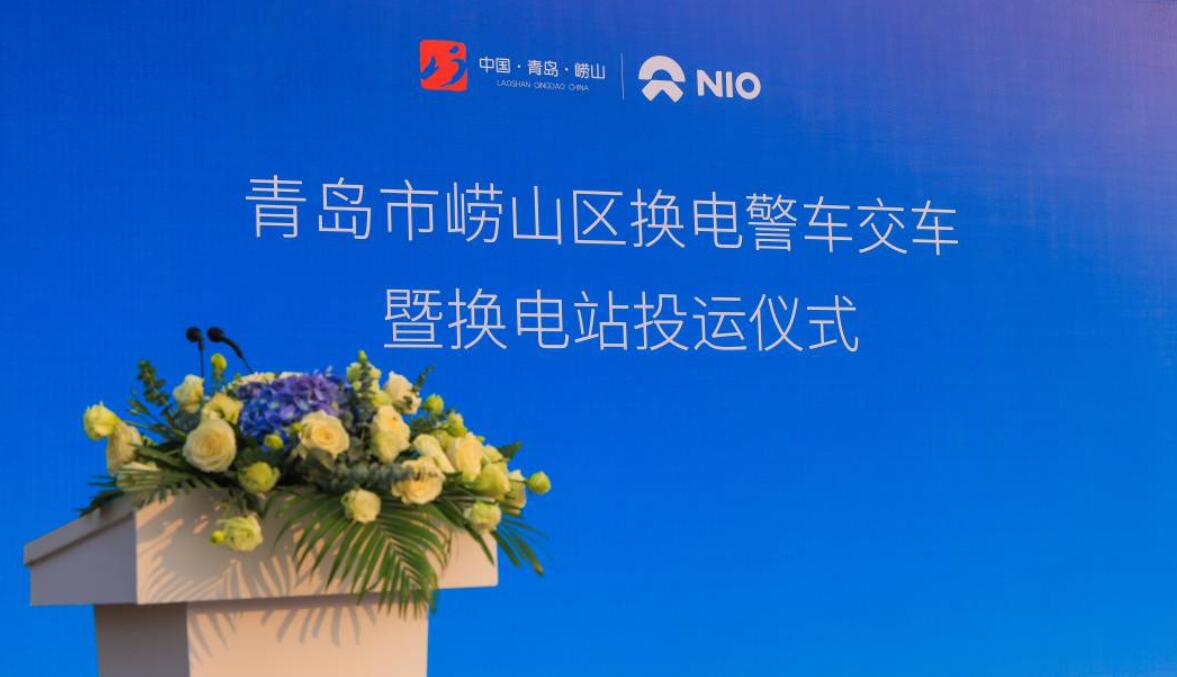Nio today delivered eight Nio ES6s to Qingdao as police vehicles.

(Image credit: Nio)
Nio is not marketing it, but the company seems to be delivering official cars already, with the latest move being the delivery of a batch of police cars in Qingdao, in eastern China's Shandong province.
The company delivered eight Nio ES6s as police cars to the Laoshan District of Qingdao today, and held a delivery ceremony to mark the occasion.
To implement China's carbon neutrality and carbon peak targets and to address the slow charging and short-range challenges of police cars, the city of Qingdao has adopted new energy vehicles that support body-battery separation for the first time in China's public service vehicle sector, Nio said.
(Image credit: Nio)
Notably, Nio did not market this in a high-profile way, and the information was put in an article in the Nio App about the company's construction of a new battery swap station in Qingdao.
Nio today added a new battery swap station in the city, alongside four 180-KW supercharging piles. To date, it has 17 battery swap stations, 23 supercharging stations, 5 destination charging stations, and access to 10,126 third-party charging piles in Qingdao.
At the end of last year, the Beijing Municipal Government issued a procurement announcement for official vehicles, and Chinese new car makers, including Nio, won the bid for the first time.
On July 26, Nio signed a strategic cooperation agreement with Guoxing Auto Service Center in Beijing to cooperate on car purchasing services for local Chinese central state agencies, central enterprises and other quasi-governmental organizations.
Founded in 1992, Guoxing is part of the National Government Offices Administration, the procurement arm of China's central government, and has the ability to provide services including car sales, repair, leasing, and insurance.
In the past few months, we have seen a number of images of Nio vehicles being used as police vehicles, but have not seen public reports and Nio has not made information about them public until today.
Become A CnEVPost Member
Become a member of CnEVPost for an ad-free reading experience and support us in producing more quality content.
Already a member? Sign in here.





